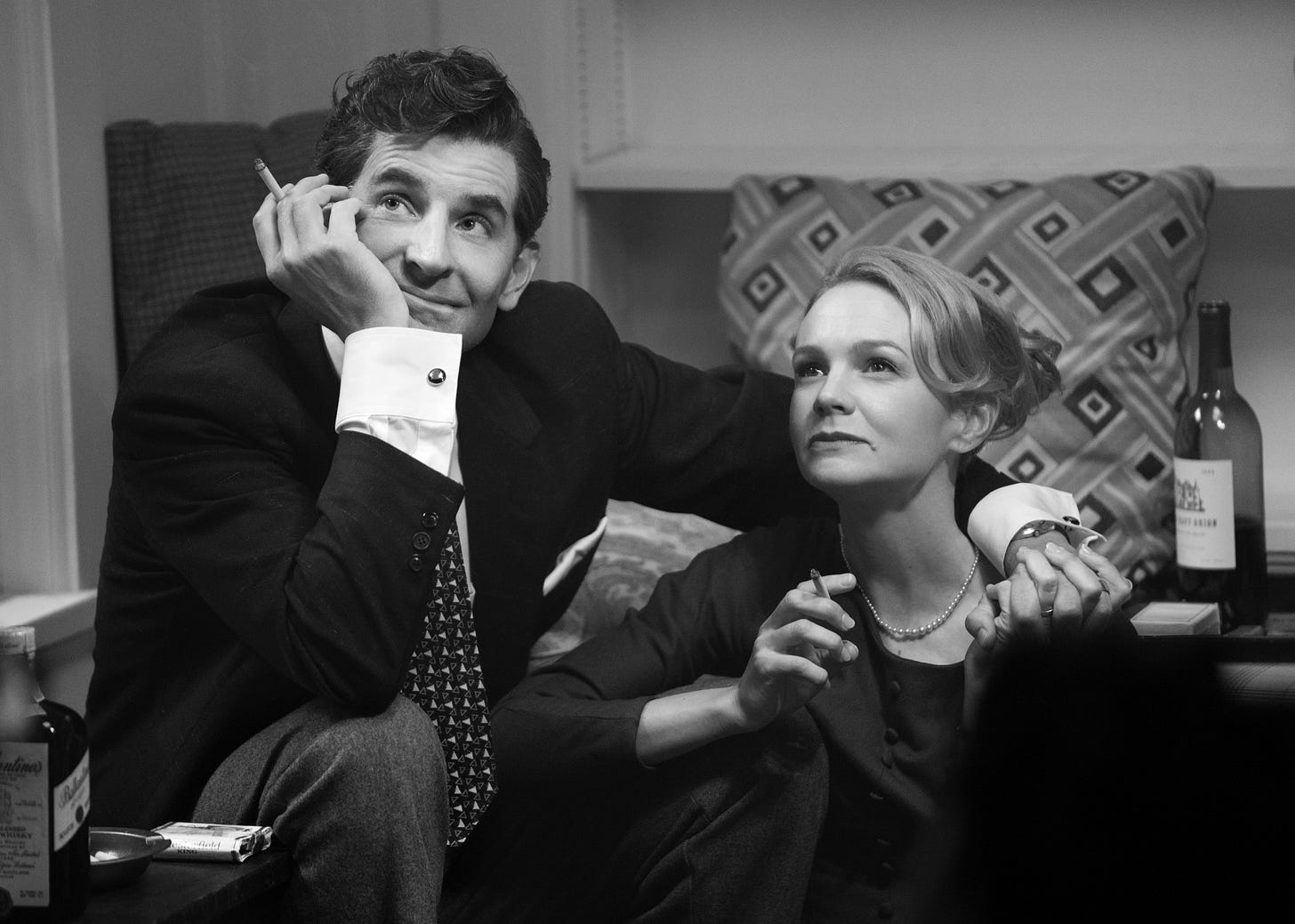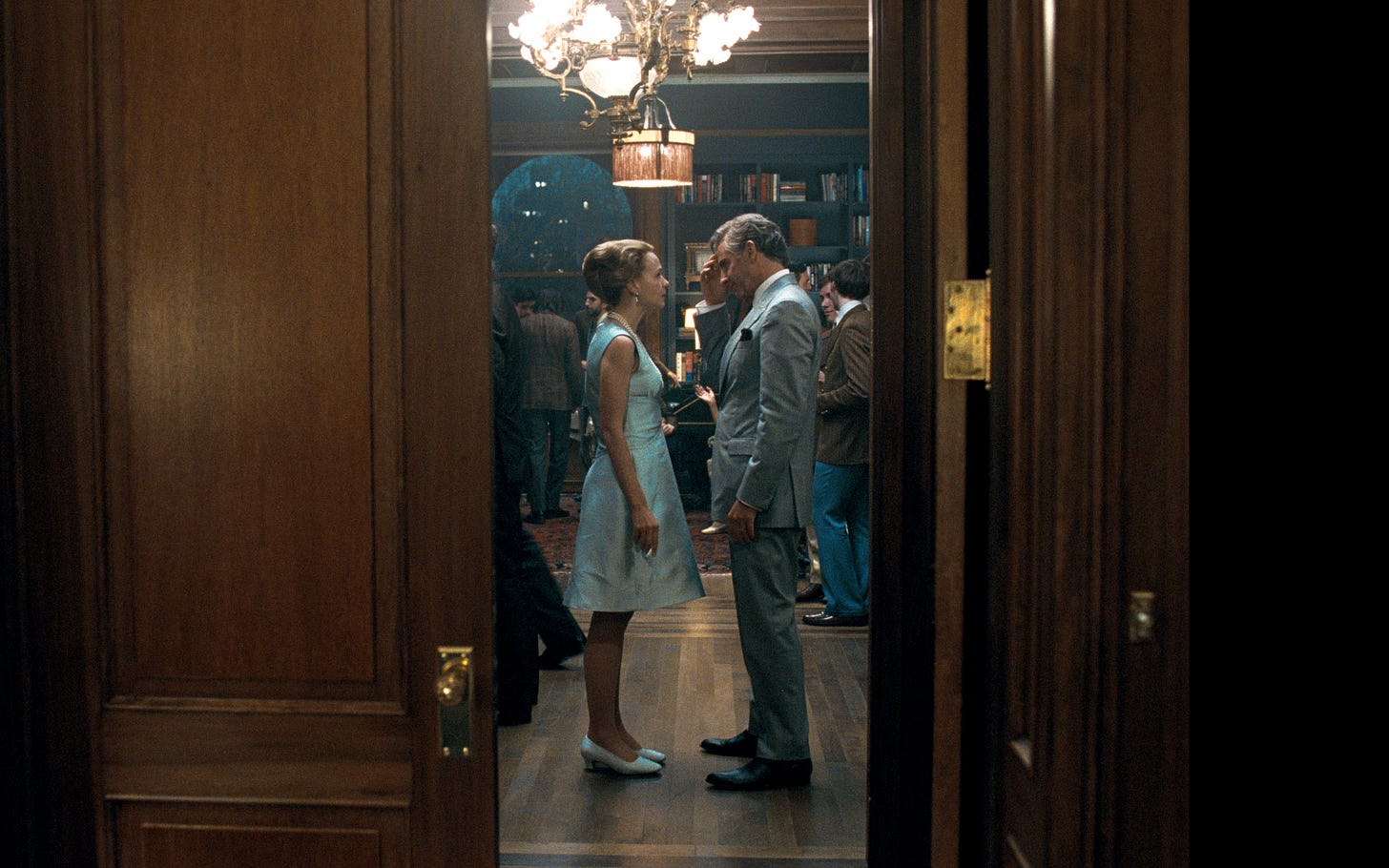In 'Maestro,' Bradley Cooper orchestrates a brilliant, messy biopic
Film looks at the complicated life and marriage of conductor Leonard Bernstein
(Photos courtesy of Netflix)
It would have been simpler if Leonard Bernstein was a monster. If America’s most famous conductor had been the latest in a long line of great men who were adored by the public and vilified by those who knew him best, he would have been easier to understand.
But Bradley Cooper’s “Maestro” is much messier, reflecting the life of a complicated, contradictory man, a flawed genius who “loved people” (as he says several times in the film) but has a harder time loving one person. Including, most of all, himself. Those paradoxes, and the brilliant, often unorthodox ways that Cooper brings them to the screen, make “Maestro” much more fascinating than your typical biopic.
Cooper, who directed and co-wrote the movie as well as plays the title role, inhabits Bernstein to an uncanny degree. We often see the composer and conductor as the hub of a large group, whether he’s joyously conducting the New York Philharmonic or holding court at a party in a room full of people. The real person is harder to see, which seemed to be how Bernstein wanted it, particularly as a closeted gay man.
Cooper balances those large, frenetic scenes with close-ups of Carey Mulligan as Bernstein’s doting, long-suffering wife Felicia. It’s in those close-ups, in the light dying in her eyes that the real emotion of “Maestro” lives.
The film opens with Cooper as an elderly Bernstein, plinking away at his piano and talking forlornly about how much he misses Felicia. Then comes the reverse shot, where we see that Bernstein is talking to a camera crew. The line between the public and the private Bernstein, what he really feels and what he projects to the world, was erased long before.
Then the film bangs into high-contrast black and white, as a young and hungry Bernstein gets his big break, conducting the New York Philharmonic in 1943 for a national broadcast when both the lead conductor and the backup are unavailable. It’s here that Cooper starts adding playfully surreal touches to the film – Bernstein seems to roll out of bed and onto the concert hall stage in one fluid shot. Again, the division between offstage and onstage is invisible for Bernstein.
His courtship of Felicia, a promising young actress with a career of her own, is filmed like a classic movie of the time, and the chemistry that crackles onscreen between Mulligan and Cooper is thrilling. But the warning signs are there in their romance – when the ambitious young Lennie muses, “I want a lot of things,” the audience can’t help but notice he’s gazing at the lithe body of a young male dancer when he says it. Felicia can’t help noticing either.
Later, Felicia and Leonard enter a sort of Jerome Robbins-esque dream ballet with those dancers, whirling and spinning and never quite connecting with each other. The dance will set the template for their long marriage together. Bernstein is always in motion, pulled away by the demands of being a public figure and by his own appetites. Mulligan is heartbreakingly good as a woman who loves, but can never quite touch, her husband, forced to share him with a long line of affairs and, of course, the world.
The screenplay by Cooper and Josh Singer calculatingly avoids hitting the biographical beats of Bernstein’s career, except obliquely, as when Felicia refers offhandedly in conversation to a reworking of “Romeo and Juliet” that Bernstein is working on. (Oh, you mean “West Side Story”?) As a result, those who don’t know Bernstein might get a little lost in understanding what’s going on or what he’s working on.
That’s by design. We might not understand the importance of his “Mass” or how his televised “Young People’s Concerts” opened classical music to a whole new generation. But we understand how hard love can be, and “Maestro” is in the end a love story about a frayed bond that still endured.
When Leonard comes back to Felicia late in her life, the scenes are just devastating to watch. We see what could have been between them. And what, despite everything, is still there.
“Maestro” is now in theaters and premieres Wednesday on Netflix.





